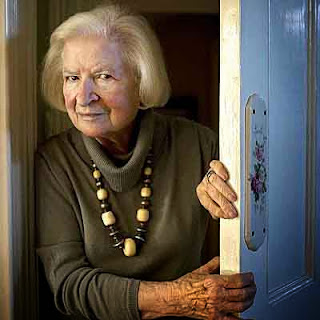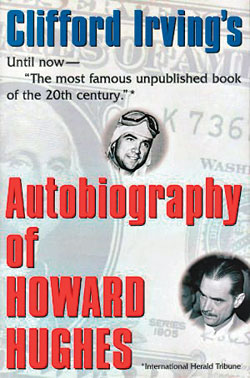As many of you know, I’ve worked in a cigar store from time to time. What may surprise you, however, is that during my years of employment, I discovered there are large numbers of “secret smokers” in this world.
These folks would duck into the shop only after looking over both shoulders, to be sure none of their friends were watching. Even inside the store, most of them would constantly scan the street outside, watching through the shop windows, keeping their voices low, as if to defeat eavesdroppers.
They acted a lot like prairie dogs who think a hawk might be nearby.
In fact, the first time I was confronted by a secret smoker, in the mid-1990’s, his furtive behavior—combined with the fact that I couldn’t hear what he was asking for, because he wouldn’t speak up— finally led me to say, “If you’re looking for drug paraphernalia, you need to go somewhere else. We’re not that kind of smoke shop, buddy.” The shop owner at the time, Larry Pollicove, came up front, at that moment, saw the guy and quickly sold him a carton of high-end imported cigarettes. (Not a pack, mind you. A carton!)

After the guy left, Larry explained, “That’s (whatever his name was). He’s a good customer, buys a carton a week, but he doesn’t want his wife to know he smokes.”
“How can his wife not know he smokes? He smokes a carton a week; can’t she smell it on him?”
He shook his head. “I don’t think so. She smokes Marlboros.”
“Wait! His wife smokes, but he has to hide the fact that he smokes? Why?”
“Because, he doesn’t know she smokes.” When he saw the look on my face, Larry burst into laughter and slapped me on the back. “Look, she buys her Marlboros from that place on the reservation. I saw her there, and asked why she didn’t buy from me, and she said she was worried her husband would find out she was still smoking. They both agreed to quit, cold turkey, and they both think the other one did. But, actually they both started smoking secretly instead.”
By this time, you’re probably beginning to doubt the veracity of my story. But, it’s absolutely true. Those two people each thought they were married to a non-smoker, but each smoked in secret. And, they smoked a lot.
In fact, there are many reasons people become secret smokers.
We used to know when the shift changed at the local fire station, because the fire truck would park out back and all the firefighters would pour in to buy cigars for their opening-shift poker game. When the city switched health insurance companies, though, the firefighters were no longer permitted to smoke. So, they’d take turns coming in for cigars, in civilian clothing, the day before the shift changed, and they started holding “barbeques” in the fenced yard behind the station. Eventually, the health coverage changed again, which we realized when they again began parking the truck out back.
The ranks of secret smokers are also comprised of people who take up teaching jobs, or work in Boys and Girls Clubs, or lead Scout troops. Many of these folks, who smoke, hide their habit out of fear that they’ll lose their position, working with kids, if parents or administrations find out they smoke.

The old Music Teacher at my kids’ elementary school, who’s now retired, used to be a secret smoker. She’d shopped at the store for years, and I’d sold her cigars and cigarettes several times. But, the day I asked how the upcoming school musical production was coming along, her head snapped up and she gave me a “deer in the headlights” look.
When I explained that my daughter was in the play, her face paled. “Oh, so you’re one of our parents at (the school).” She was clearly trying to play it cool, but failing miserably. If she worked as a spy, she’d have been shot dead in about ten seconds.
I quickly explained that her secret was safe with me; I wasn’t going to tell anyone she smoked. Her relief was nearly palpable—even from where I stood, across the counter from her. From then on, whenever I sold her tobacco, she’d lift one finger across her lips and remind me, “Mums the word.” I’d nod and pretend to lock my lips shut.
At the shop, she was very friendly, constantly seeking my advice about different cigars, because she was the cigar smoker; her husband was the one who smoked cigarettes. He taught at a different school, but was too afraid to be seen in the shop, so she did the tobacco buying. When I saw her at school, however, she’d act as if she didn’t know me—even pretending not to know my name. I never even knew who her husband was, until he came in after having retired. That was when I discovered he’d been the Assistant Principal at my son’s middle school.
People have other secrets, too, of course.
One customer at the cigar store believed he had secretly managed to purchase an entire barrel of whiskey, at a famous distillery, without his wife knowing, while he and she were on vacation in Scotland.
After his purchase matured, he naturally wanted to drink some of it. However, the only way to export it to the U.S. was to bottle it. Evidently, regulations prohibit importation by the barrel, at least for private persons. Consequently, this guy spent incredible amounts of time trying to figure out how to get it bottled in Scotland, then shipped to Arizona—all without his wife finding out. He was also quite parsimonious, so part of his problem was finding the cheapest way to do all this.
The kicker is: She knew all about it. When he went outside to take a call on his cell phone, one day, while the pair were in the shop, she chuckled and announced: “He’s gone outside, because that call’s about his whiskey. He thinks I don’t know he bought a barrel of it while we were in Scotland, ten years ago. Don’t tell him I know, because, whenever he thinks I’m getting suspicious, he buys me gifts to lead me away from the clues. And that skin-flint almost never buys me anything nice!” Everybody roared with laughter, and when the guy came back in, asking what he’d missed, we laughed even harder.
We had a young lady who liked to smoke cigarettes while chatting-up the younger male customers. A good customer once told me he didn’t think she was pretty, which surprised me because everyone else thought she was.
I’ll never forget his words, when I asked why he didn’t think she was pretty. “She’s got ugly feet, man. Big hammer toes! She’s got ugly feet, and she’s an ugly girl.”
Now the cigar store is a place where we give each other a good-natured hard time. So, shortly after that, when a woman walked past the window in sandals, I asked him, “What about her feet? Does she have pretty feet? Or ugly feet?” We were pretty good friends, but he wouldn’t answer me, and I could tell he was getting upset. So, I knocked it off.
Later, I got him alone, and discovered that he was embarrassed because he had a “foot fetish” and didn’t want anyone to know. He hadn’t meant to let the cat out of the bag, earlier. “You—you stupid idiot—you just
had to figure it out!” He shook his head. “I should have known.”
I didn’t mention that it hardly took an egghead to figure it out, when he said what he’d said. Instead, I just assured him his secret was safe with me.
The next time he came in with his wife, whom I’d never found even remotely attractive, I noticed that she wore toe rings and a thin silver anklet. Her feet were carefully pedicured, long and thin with glossy polish on her nails. For the first time, I realized why this guy thought his wife was so attractive that he often bragged about her beauty—something no one in the shop could understand.
It was all because of the secret way he looked at her. To him, I think, she was a woman with beautiful feet. Ergo, she was a beautiful woman, which should be glaringly obvious to everyone.
Here was a guy with a secret so important to him, that it deeply influenced his life choices, as well as the way he saw people. Yet, he was afraid to let almost anyone know about that secret.
What must that be like? I wondered.
To care so deeply about something, yet be afraid to admit it to anyone. We often hear talk of “closeted” gay people. But, here was a heterosexual person who was just as deep in the proverbial closet as any gay person could possibly get.
He moved away several years ago, and most of the guys who knew him have gone to the four winds since then, which is why I feel safe posting this now. I don’t believe anyone could possibly figure out who it was.
The title of this post, however, is
The Secrets to Writing.
What are the secrets to writing? I have no idea, except to say I think you have to figure it out for yourself—because everyone’s secrets are different.
One suggestion I would make, however, is that you might consider giving your characters some secrets of their own.
See you in two weeks!
--Dixon
 Second lady says, "That's nice," and keeps rocking.
Second lady says, "That's nice," and keeps rocking.


































